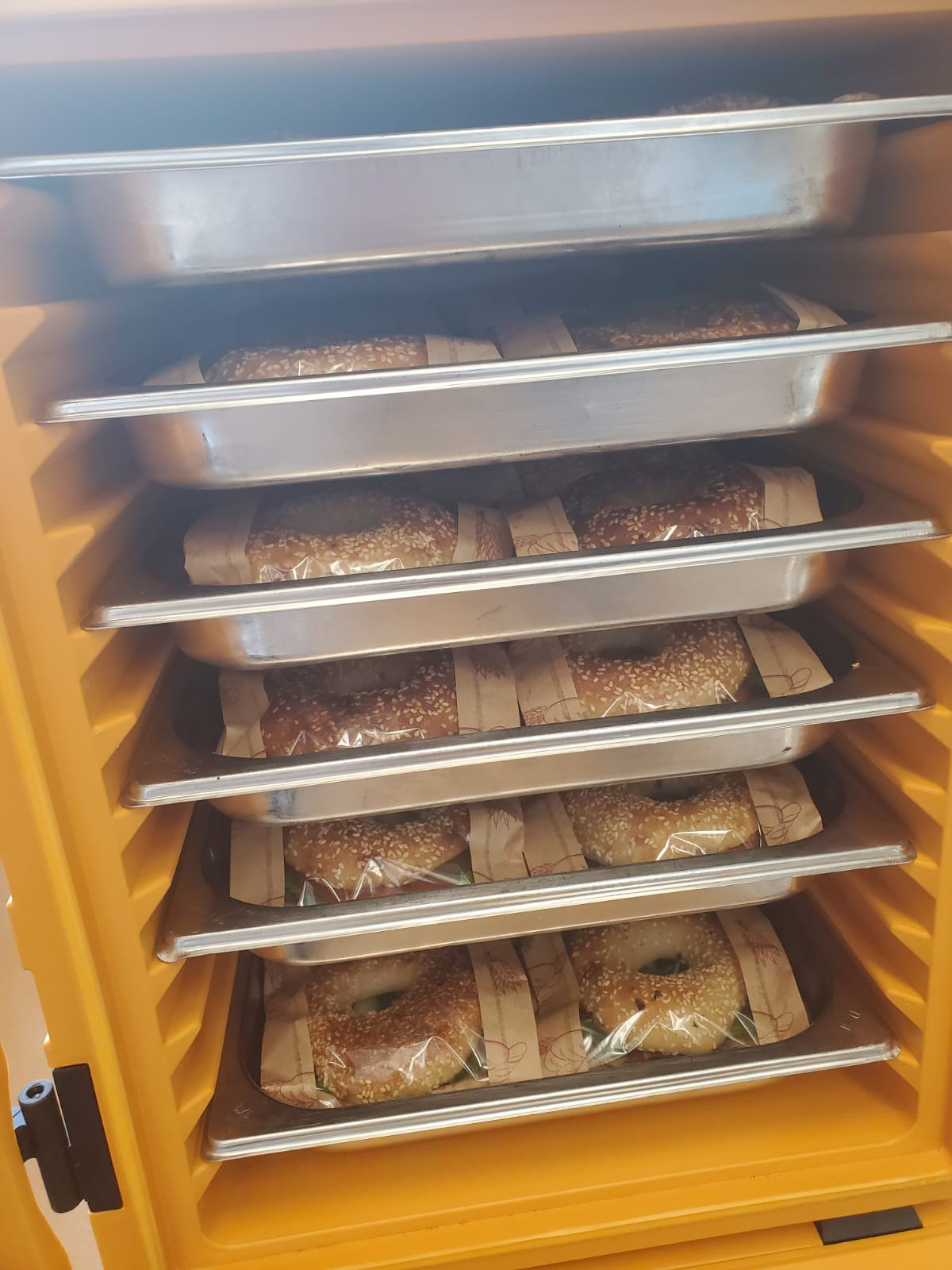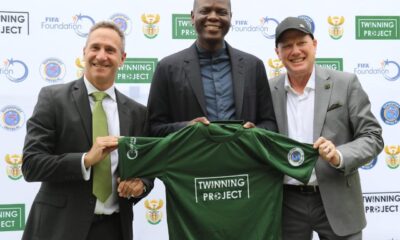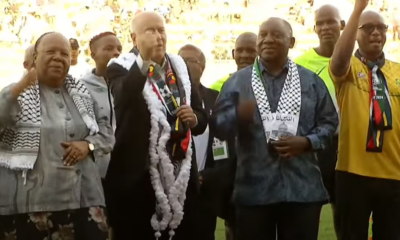
Sport

No beer at World Cup, but there will be kosher bagels
Kosher bagels are available for fans attending the FIFA World Cup in Qatar, thanks to New York-based Rabbi Marc Schneier and Istanbul-based Rabbi Mendy Chitrik, who worked with Qatari officials to create kosher catering for Jewish fans at the World Cup.
The kosher bagels are being baked in a catering space provided by Qatar Airways.
“We decided to go with the theme of bagels because though they aren’t well known here in Qatar, they are very well known in the United States and ethnically identified with Jews,” Schneier told the Jewish Telegraphic Agency (JTA). “They’re probably the first kosher bagels being produced and baked here in Qatar.”
The kitchen will be operational for the full 30 days of the World Cup. It’s under the supervision of Chitrik, who has helped facilitate previous kosher operations in the Middle East. Many people phoned him to ask if kosher food would be available in Qatar.
“As rabbis in the region, we felt it was our responsibility to respond to those requests and make sure that people have something to eat if they’re coming to the games,” he told JTA. “Some people are staying for a month.”
Chitrik and Schneier said that if they experienced high demand, they hoped to increase the offerings beyond bagels.
They denied reports that Qatar had banned cooked kosher food at the World Cup.
Chitrik said no cooked kosher food was available because deciding to open a kosher kitchen “was very last minute, so there’s no meat”.
Both Chitrik and Schneier are in the business of building Jewish-Islamic relations. Schneier is president of the Foundation for Ethnic Understanding, a non-profit organisation devoted to improving Jewish-Muslim relations, while Chitrik leads the Alliance of Rabbis in Islamic States.
The former collaborated with his Qatari contacts to help bring the first direct flights from Israel to the gulf nation, enabling Israeli soccer fans to attend the World Cup unhindered by regional politics. In spite of the lack of formal relations, the Israeli foreign ministry negotiated the establishment of a temporary diplomatic mission and consular office to serve its citizens throughout the tournament.
Veteran South African football administrator Raymond Hack, an honorary life member of Maccabi, says the question of the impact on Jews of the World Cup being held in the Middle East is something Israel should answer. “I’ve been involved in the Confederation of African Football and FIFA, and I’ve never ever had any altercations,” he says. “I’ve never experienced antisemitism. I mean, I know the chairperson of the Palestinian Football Association. I’ve met him and the president of the Israeli one.”
The United States squad has two players with Jewish roots. Goalkeeper Matt Turner’s father is Jewish, while right-back DeAndre Yedlin’s great-grandparents are Jewish and he sports a Hebrew tattoo dedicated to them.
Israeli sports enthusiast Michael Jankelowitz, attending his third FIFA World Cup, is one of the approximately 15 000 Israelis watching the spectacle in Qatar. He marvels at the vibe, excitement, and atmosphere, saying that nothing beats attending a live World Cup, be it soccer, rugby, or cricket.
Tickets for group-stage games in Qatar are reasonable for a tournament of such prestige, Jankelowitz says. “Tickets start at 250 Rial, the equivalent of about $69 [R1 192] a game.”
He watched Holland’s 2-0 win over Senegal in the packed 45 000-capacity Al Thumama Stadium, built in the shape of a Muslim skullcap. “Many Dutch fans and local expatriates from the Indian subcontinent attended. Very few Senegalese,” he said.
All the eight World Cup stadiums in Qatar are within a 100km radius, making it possible to see a maximum number of games at different stadiums without having to fly. “At the 2026 World Cup, fans will have to fly from New York to Los Angeles to Miami to Chicago to see the same number of games,” Jankelowitz says.
Hack says the significance of the tournament being held following the COVID-19 pandemic is that “People are able to travel and get back to some form of normality. The passion of having spectators in the stadium is something everybody wants. You could still play football when there were empty stadiums, but spectators certainly add to the atmosphere.”
South Africa will be represented on the field by referee Victor Gomes and linesman Zakhele Siwela in Qatar, while Bafana Bafana team doctor Thulani Ngwenya will be the doping control officer at the tournament. In addition, former Bafana Bafana coach Carlos Queiroz and former Orlando Pirates coach Roger De Sá will be in the dugout as the respective coach and assistant coach of Iran. Australian midfielder Keanu Baccus, meanwhile, was born in Durban.










